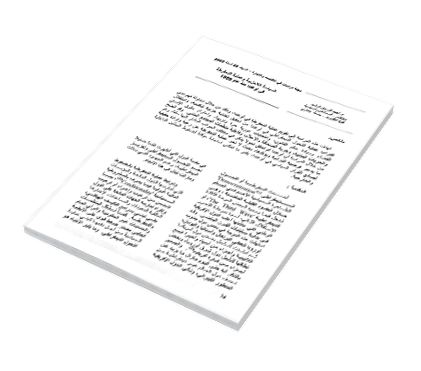السياسة اللاحزبية وعملية الديمقرطة في اوغندا منذ عام 1986
DOI:
https://doi.org/10.37376/deb.v28i.2991الملخص
The main purpose of this paper is to examine how env -ironmental pressures, internal and external affect the develop ment of democratization pro- cess in Uganda. It is of interest to investigate whether or not the Ugandans have achieved appropriate levels of free and fair elections, independence of judiciary, respect for human rights and civil liberties, freed om of press, and the effecti- veness of civil society's organi -zations.
Leaders and Supporters of National Resistance Movement argue that the non-party system during the period 1986-2006 is an appropriate system for Uganda, since the country is divided into many ethnic, religious and sectarian groups. Despite that, there was a radical shift in the Ugandans' view of multi-party system as while the voters rejected multi-party system in the first vote in June 2000, they welcomed overwhelmingly the opening of political space for multiparty system in the second vote in July 2005. This may raise many questions dealing mostly with the nature and causes of this rapid change.
The findings support the hypothesis of the study since the country's experience with democratization does not refle-ct a genuine desire and will on the part of decision-makers in Uganda. It is no more than a short-term response to external pressure. Accordingly, Uganda did not achieve a real improve-ement in all aspects of political life.
التنزيلات

التنزيلات
منشور
كيفية الاقتباس
إصدار
القسم
الرخصة
الحقوق الفكرية (c) 2022 دراسات في الاقتصاد والتجارة

هذا العمل مرخص بموجب Creative Commons Attribution-NonCommercial-NoDerivatives 4.0 International License.







